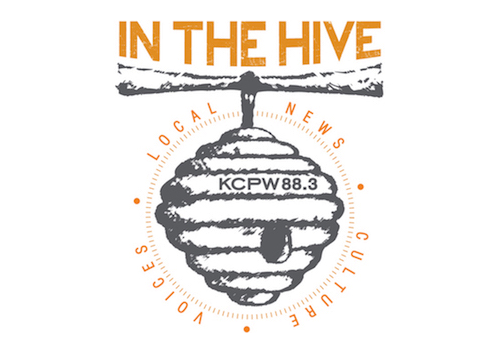Today on In the Hive, an update on the Utah Inland Port — the giant distribution hub slated for Salt Lake City’s northwest quadrant that some have called “the largest economic project in the history of the state of Utah.”
On Wednesday, the Inland Port board met to discuss creating a new entity – a Public Infrastructure District – to fund millions of dollars of projects related to the port. But while Inland Port executive director Jack Hedge says the project is ‘full steam ahead,’ uncertainty looms because of a still-outstanding case at the Utah Supreme Court pertaining to the way the port was created. In the balance: who will control the land use and taxing authority on 16,000 acres of land in Salt Lake City’s jurisdiction – the city or the Port Authority?
Guests:
Jack Hedge, Utah Inland Port Authority Executive Director
Deeda Seed, Stop the Polluting Port Coalition
How do you feel about this topic?
Is there anything else you think we should know? We'd like to hear your thoughts. Send us your feedback using the form below.






3 Comments
Hi Deeda. I am happy that you are taking on this environmental and residential debacle, the proposed “inland port”. Salt Lake City is already seeing one disaster unfold for years with the distruction of Steep Mountain at the Point of The Mountain.
I think it is important to take this issue also to people in this state with decision making power. A few days ago the CEO of Snowbird spoke on KSL radio regarding to proposal to build a gondola system in Little Cottonwood canyon to help reduce air pollution in the canyon. I think it is far more important that Dave Fields be aware of how much the enormous boost of air pollution at Salt Lake with the inland port will dirty the lake effect lake directly effects the snow at Snowbird. As you know, Robert Redford who owns Sundance Resort has been heavily involved with SUWA for many years. When we have been talking with the port authority we have been talking to a brick wall. Let’s reach out to people who can make a difference in swaying the minds of Utahns.
Hi Michael. Excellent comment, and I agree with you – mostly. The one thing I would rebut you on is the fact that expanding transit options into Little Cottonwood Canyon would increase (albeit minimally) the air pollution in the Canyon itself, as there is no human activity that produces zero pollution.
However, you are absolutely correct in saying that the Port poses the greatest risk, as the dust and black carbon/soot that it will kick up will have a devastating effect on the nearby snow packs as well as all the activities and economies that rely on them – and that doesn’t even begin to discuss the water-resources issue that is already growing worse thanks to climate change.
While I agree that we need to talk to the people-in-power, I doubt that we’ll be able to get through to them as they are too involved with the special interests who are pushing the Port project in the first place. Instead, we need to convince Utahns to elect state legislators who care about public interests and the environment so that the legislature works for the People instead of the greedy industries behind the Port. Otherwise, we’ll continue to see more and more dirty and unsustainable projects pop up all over Utah, which is not what we need (especially right now).
The Utah Inland Port project is another tragic example of putting the economy ahead of the environment, which is actually impossible since an economy can’t exist without a healthy environment to encapsulate it.
I am greatly troubled by the ongoing back-bending by Utah state legislators towards the dirty-energy interests that seem hellbent on maintaining the status-quo even if it drives us all to our collective doom.
If Utah cares about protecting its treasured environment, then it should withdraw this disastrous project at once and apologize to everyone who has been harmed by it already (including the wildlife whose habitat will be destroyed).
– David Pedersen, British Columbia (Canada)